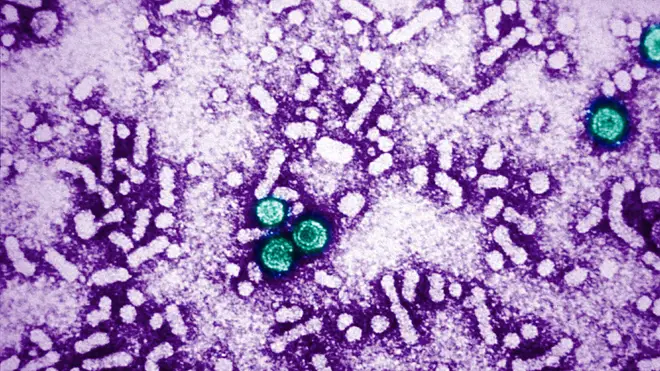
Ian Payne 4am - 7am
21 April 2022, 13:42

The number of cases of hepatitis among children under the age of 10 being investigated has risen to 108, health officials have confirmed as link to Covid-19 vaccine ruled out.
The UK Health Security Agency (UKHSA) said it, Public Health Scotland, Public Health Wales and the Northern Ireland Public Health Agency were continuing to investigate the rise in cases of sudden onset hepatitis, liver inflammation, in children since January.
It brings the total number of infections to 108 with a further 34 cases being identified. Eight children have now needed liver transplants.
79 of those cases have been identified in England, with 14 in Scotland and the rest in Wales and Northern Ireland, the UKHSA said.
Hepatitis is the term used to describe inflammation of the liver and has multiple variants, according to the NHS.
Possible causes of the rise in cases are currently being investigated by the public health agencies but confirmed there was no link to Covid-19 vaccinations as none of the children are known to have received the jab.
But, 77% of cases tested positive for adenovirus, which the agencies say is "not usual to see."
Read More: Six children given liver transplants as investigation into hepatitis surge in children continues
The investigation uses information from patient samples and various surveillance systems and points to a potential link between the group of viruses and the rise in hepatitis cases.
They are also looking into other possible factors, such as environmental causes, or a change in the genome of the adenovirus.
Dr Meera Chand, director of clinical and emerging infections at UKHSA, said: "We are working with the NHS and public health colleagues in Scotland, Wales and Northern Ireland to swiftly investigate a wide range of possible factors which may be causing children to be admitted to hospital with liver inflammation known as hepatitis.
"Information gathered through our investigations increasingly suggests that this is linked to adenovirus infection. However, we are thoroughly investigating other potential causes."
The symptoms for hepatitis are:
The UKHSA said that adenoviruses are a relatively common group of viruses that cause a range of mild illnesses - including colds, vomiting and diarrhoea. They state that most people recover without complications.
While they do not typically cause hepatitis, it is a known rare complication of the virus.
Read More: Parents warned to be alert to hepatitis signs after cases in England and Scotland
Adenoviruses are commonly passed from person to person and by touching surfaces contaminated with the virus, as well as through the "respiratory route."
The agency added that the most effective way to minimise the spread is to practise good hand and respiratory hygiene and supervise thorough hand-washing in younger children.
Dr Chand added: "Normal hygiene measures such as thorough hand-washing - including supervising children - and good thorough respiratory hygiene, help to reduce the spread of many common infections, including adenovirus.
"We are also calling on parents and guardians, to be alert to the signs of hepatitis - including jaundice - and to contact a healthcare professional if they are concerned."